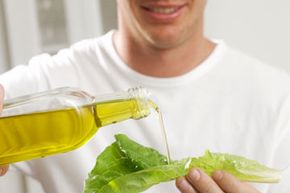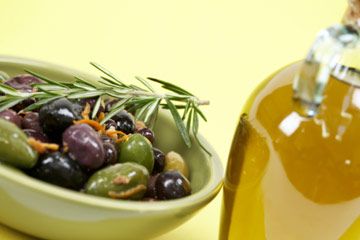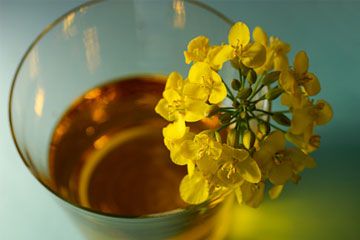People don't usually associate the words "fat" and "oil" with anything healthy. But, in fact, not all fats are bad for you. It makes a lot of sense to learn the difference between good and bad fats, since the fat in a person's diet affects his or her cholesterol levels, which in turn can affect heart health.
In the United States alone, cardiovascular disease killed more than 830,000 people in 2006, accounting for 34.3 percent of all deaths in the country [source: American Heart Association]. Fortunately, one of the simplest ways to help prevent heart disease is by making smart choices when it comes to diet, particularly in terms of the fats consumed.
Advertisement
Cutting fat out of a diet completely is not the answer. Fats should actually account for 20 to 35 percent of a balanced diet [source: U.S. Department of Health and Human Services]. The trick is to make sure that this percentage consists of the right kinds of fat, which means steering clear of saturated and trans fats. One of the best and healthiest alternatives to these heart-hostile fats is canola oil, a vegetable oil made possible by a plant that didn't even exist a half-century ago.
The name "canola" is actually a contraction of "Canadian oil, low acid", which is a fairly accurate description of this versatile oil. In the 1960s, a group of Canadian scientists used traditional plant breeding methods to derive the canola plant from rapeseed, which was already being used to produce non-edible oils. The breeding techniques allowed them to eliminate erucic acid and glucosinolates, both of which are found in rapeseed and can be toxic to humans. The result was canola, a yellow flowering plant classified in the Brassica family -- the same vegetable family as cauliflower and cabbages. Pressing the flower's tiny seeds yields canola oil.
With its neutral taste and high heat tolerance, canola oil works well in salad dressings, sauces and marinades, and it also provides a good base for sautéing, grilling or stir-frying meat and vegetables. For bakers, canola fulfills dual purposes, as both a substitute for solid fats, such as butter, and as an effective non-stick agent for pans. Best of all, canola does all this while still maintaining its status as a good-for-you oil. In order to understand what makes canola oil "good," we have to look at what it is actually made of.
Advertisement



